Key moments of Derek Chauvin’s trial
Closing arguments were set for Monday in the murder trial of fired Minneapolis police officer Derek Chauvin over the agonizing death of George Floyd on May 25, 2020 — a slaying that set off a global movement for racial justice and police accountability.
Fencing and National Guard troops were expected to surround the courthouse in anticipation of protests.
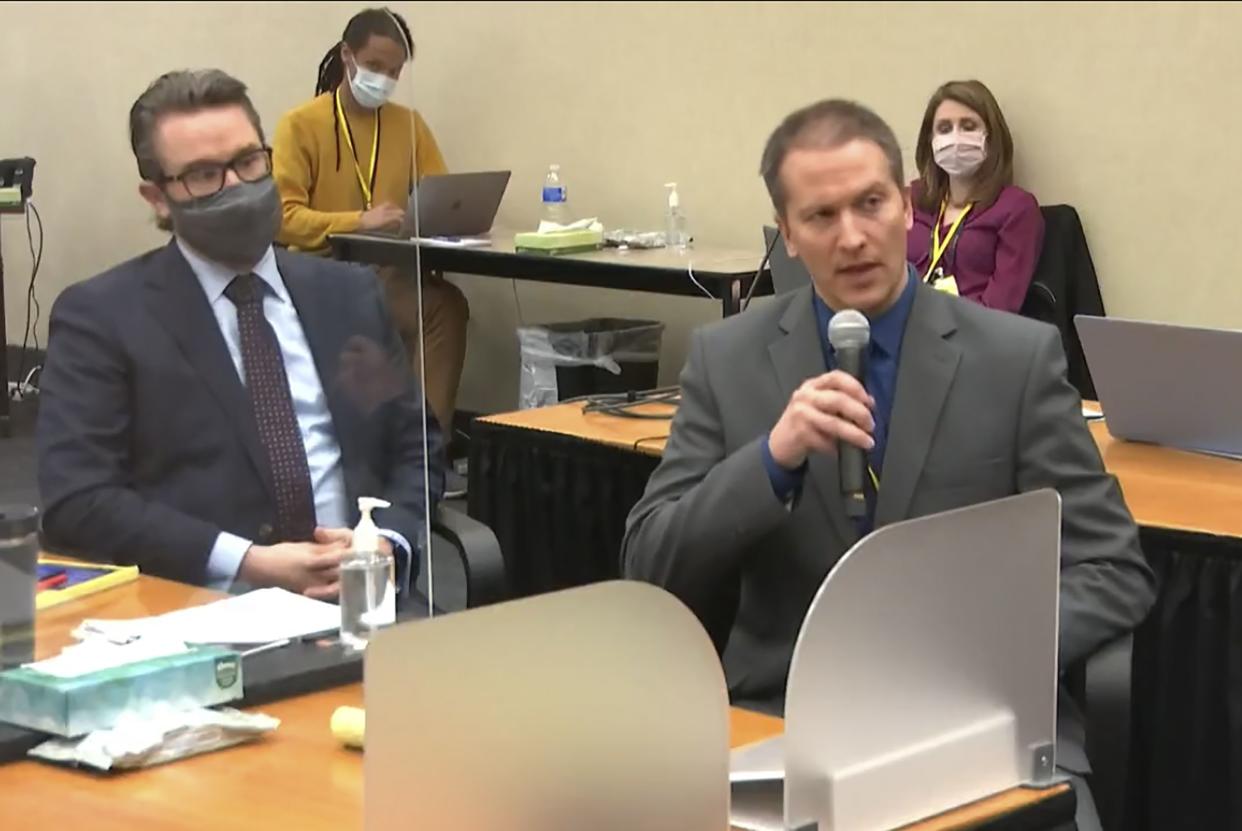
The final arguments come after state prosecutors and Chauvin’s defense team spent three weeks presenting their cases based on evidence and witness testimony — and not a single mention of Black Lives Matter or social issues that’ve become tied to Floyd.
“We have two different courts going on right now: The trial court and the court of public opinion, and they really came together here in interesting ways,” said David Schultz, a professor at the University of Minnesota Law School.
“Even though it’s not supposed to be, technically, a referendum on race in America or policing in America, it’s become what? A referendum on police and race in America,” he told the Daily News.
Amid increased tensions brought by the police killing of Daunte Wright in a Minneapolis suburb last week, the jury was instructed to avoid all news about that case, and to make their decision based only on the evidence presented in court.

The 12 men and women will be sequestered for the closing statements and jury deliberations as they decide whether to convict or acquit Chauvin on any of three charges — second-degree murder, second-degree manslaughter and third-degree murder. If they can’t reach a unanimous decision on at least one charge, the judge will declare a mistrial.
Lawyers who spoke with The News said an acquittal on all three charges is unlikely, though a hung jury wouldn’t be a surprise.
“The state’s case was very effective,” said trial lawyer Eric Anderson.
“Unfortunately, there’s a great deal with deference that certain communities and certain people give to law enforcement,” he said. “If it wasn’t for that video tape, I don’t even know if we would get this far in this case.”
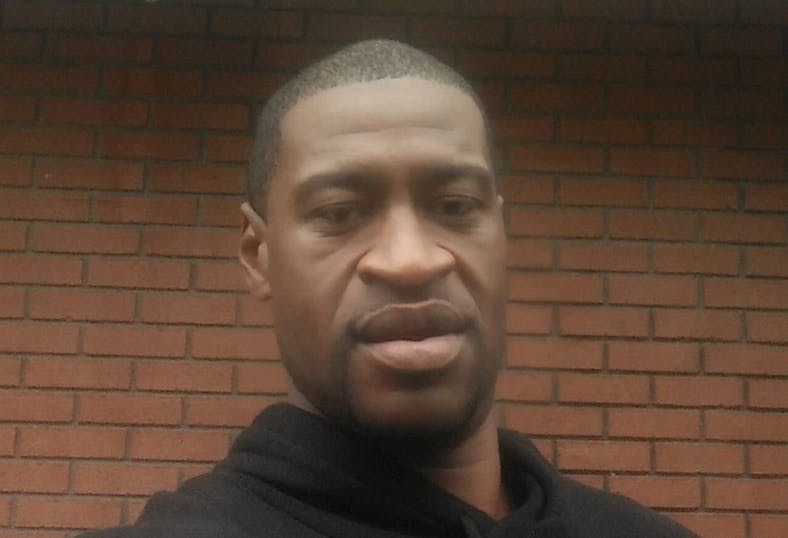
Civil rights lawyer Christa Ramey agreed, describing the prosecution’s work as “fantastic” but noting defense lawyer Eric Nelson did “one heck of a job” trying to raise doubt about a case that many had seen as air-tight.
Here’s a rundown of key moments during the trial:
Floyd’s final moments
As expected, the graphic bystander video of Floyd grasping for breaths and pleading for his life under Chauvin’s custody played a big role in the prosecution’s case. Prosecutor Jerry Blackwell, who kicked off his opening statement by playing the harrowing video, revealed that Chauvin knelt on Floyd’s neck for nine minutes and 29 seconds — significantly longer than the eight minutes and 43 seconds reported earlier in the investigation.
Prosecutors also presented a series of previously unseen surveillance and police body cam footage, showing the deadly police encounter from multiple angles. One of the videos showed Floyd walking, stretching and interacting with people inside a convenience store — a stark contrast with the man who was seen begging for his life in a fatal arrest moments later.
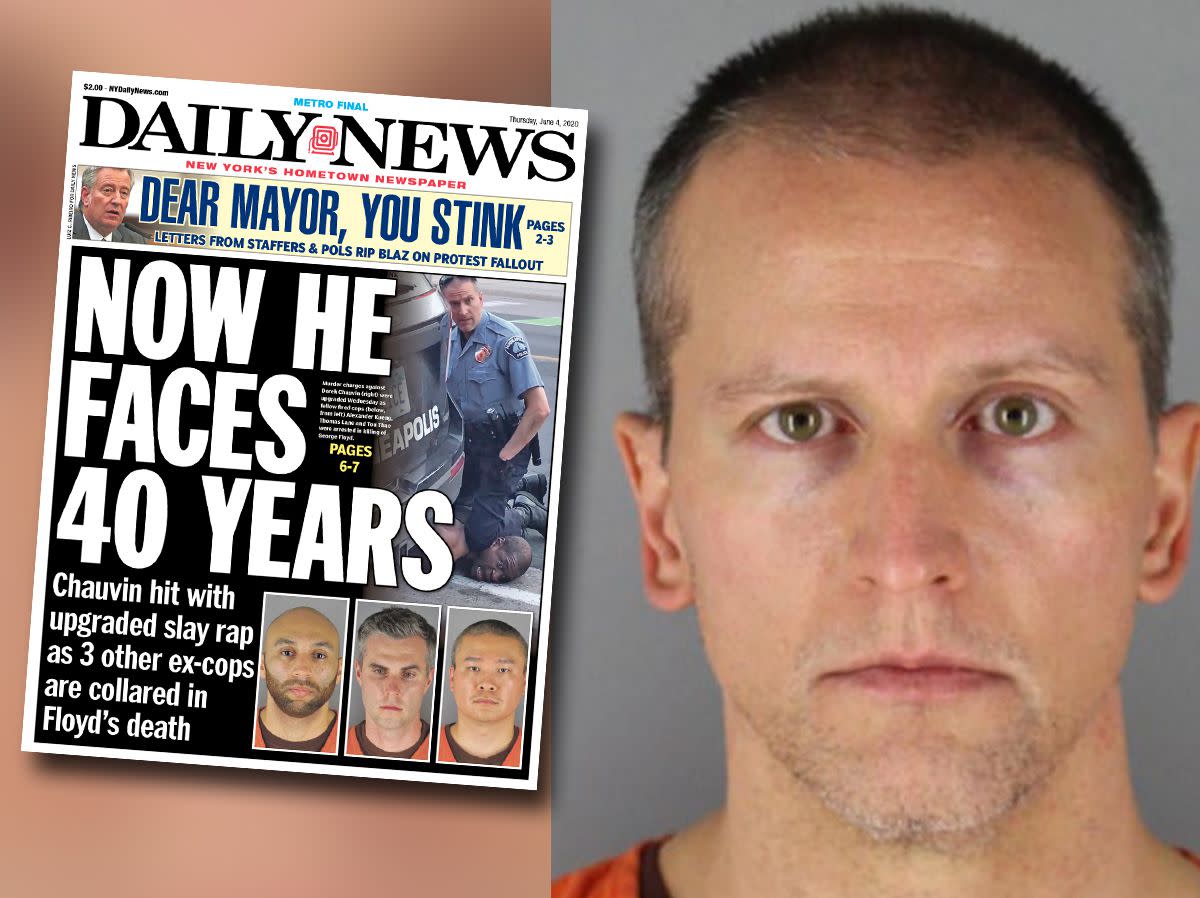
The first few days of testimony were dominated by eyewitnesses who watched the deadly incident in real time. The emotional testimonies revealed that some of them still struggle to overcome the trauma of watching Floyd’s final moments play out right before their eyes.
Darnella Frazier, a teenage girl who recorded the viral bystander video, said the images still haunt her and she sometimes stay up at night “apologizing to George Floyd for not doing more” to save his life. Another bystander, 61-year-old Charles McMillian, broke down on the stand as he watched a new bodycam video of the incident, telling the court the images made him feel “helpless.”
Anderson believes the bystanders’ testimonies helped the jury realize “something bad happened here” and that Floyd was someone they should care about.
“One of the problems, historically, with cases that have racial undertones is that white jurors as a whole often don’t care enough about Black victims. They just don’t,” he said. “So when you’re able to put a reason for them to identify with someone as a person, it makes it easier to get to the next level.”
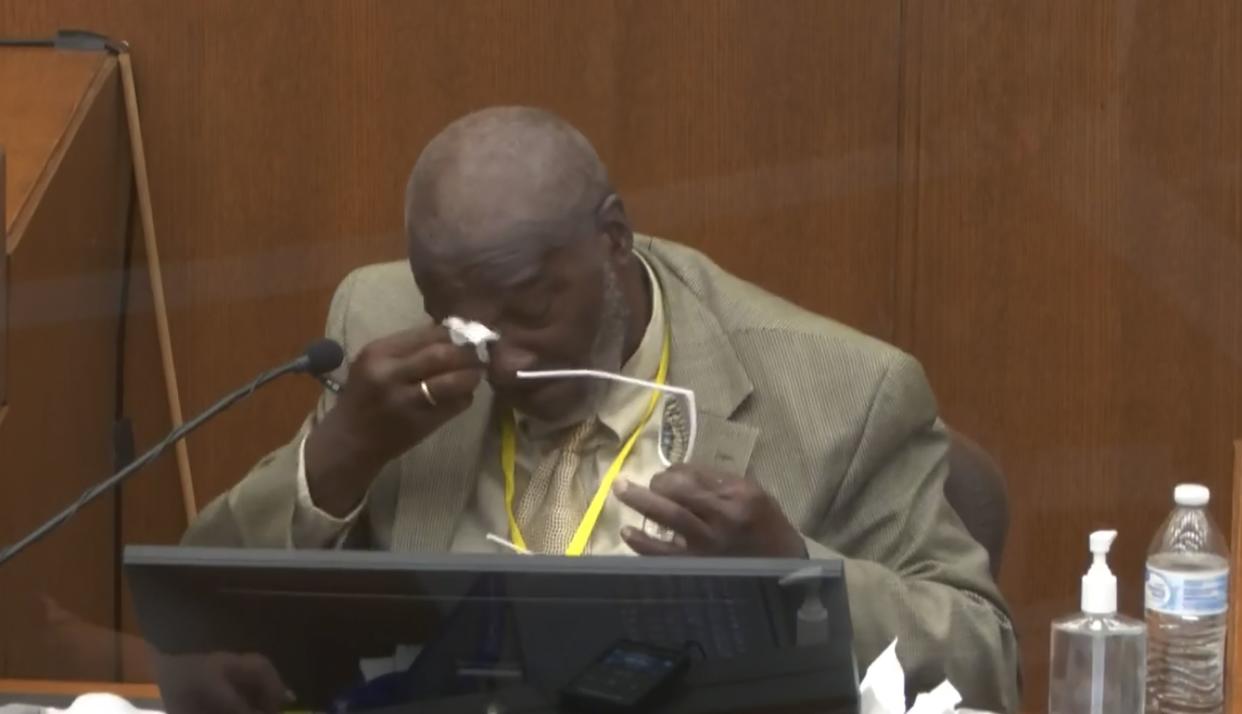
A crack in the ‘blue wall of silence’
In another remarkable courtroom moment, the jury saw the rare testimony of a police chief against one of his own officers. Minneapolis Police Chief Medaria Arradondo was one of several current or former members of the city’s police department who said Chauvin violated the agency’s use-of-force policy and ignored his training.
Schultz said Arradondo’s “powerful” testimony was one of the most convincing and consequential. Winning a conviction against a police officer, Schultz said, is rare and complicated because of the protections they have in using force on their job. But hearing testimony from those who trained and worked with Chauvin for years may have swayed many jurors.
“All of that was an effort to show that normal protections that police are given didn’t apply here,” Schultz told The News.
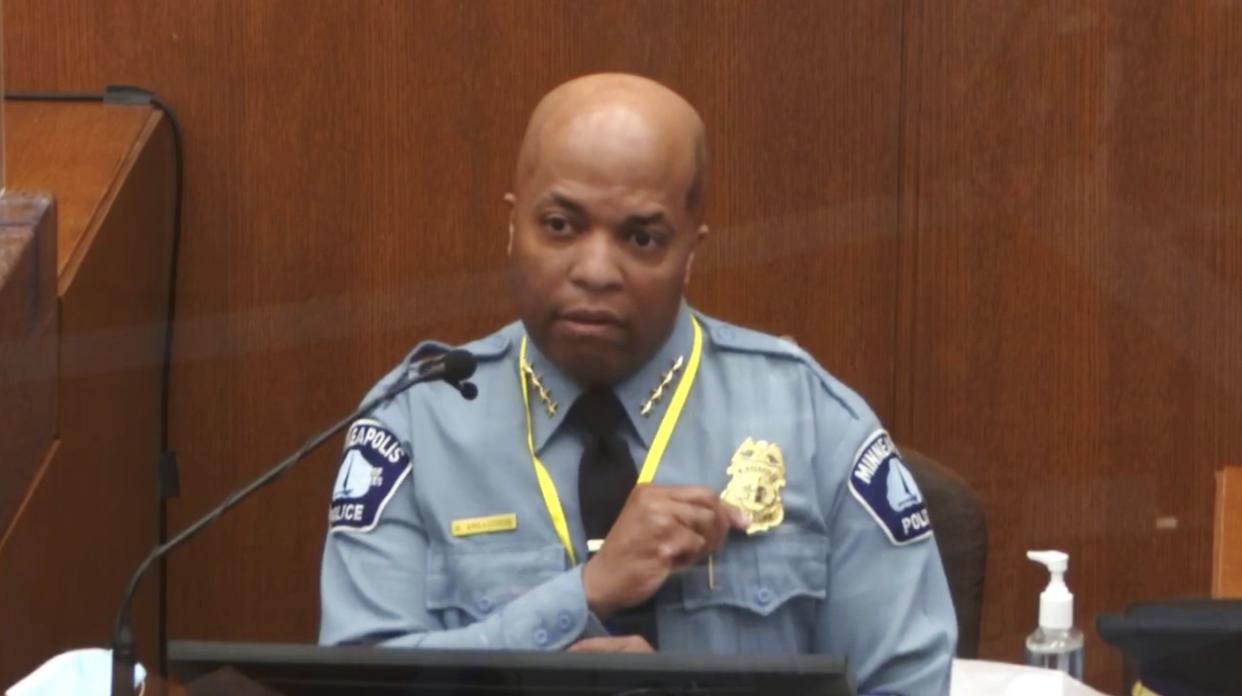
Floyd’s cause of death
One of the biggest questions before the trial began was how Chauvin’s lawyer would defend his client against so much video evidence. In his opening statement, defense attorney Nelson brought up Floyd’s weight and strength, painted the group of bystanders at the scene as hostile and threatening to the officers and said his client “did exactly what he was trained to do over the course of his 19-year career.”
Nelson also appeared to focus most of his efforts on alternative explanations for Floyd’s death. As the prosecution’s medical witnesses made the case that Floyd died from positional asphyxia, or low oxygen levels — caused by Chauvin’s knee — Nelson focused on whether Floyd’s heart disease, his enlarged heart, the methamphetamine and fentanyl found in his system and adrenaline flowing through his body during the arrest contributed to his death.
The defense’s sole medical expert, Dr. David Fowler, went even further, telling the jury carbon monoxide poisoning from the squad car at the scene may have played a role in Floyd’s death, asserting Floyd’s manner of death was “undetermined” — contradicting an official autopsy that determined it was a homicide.
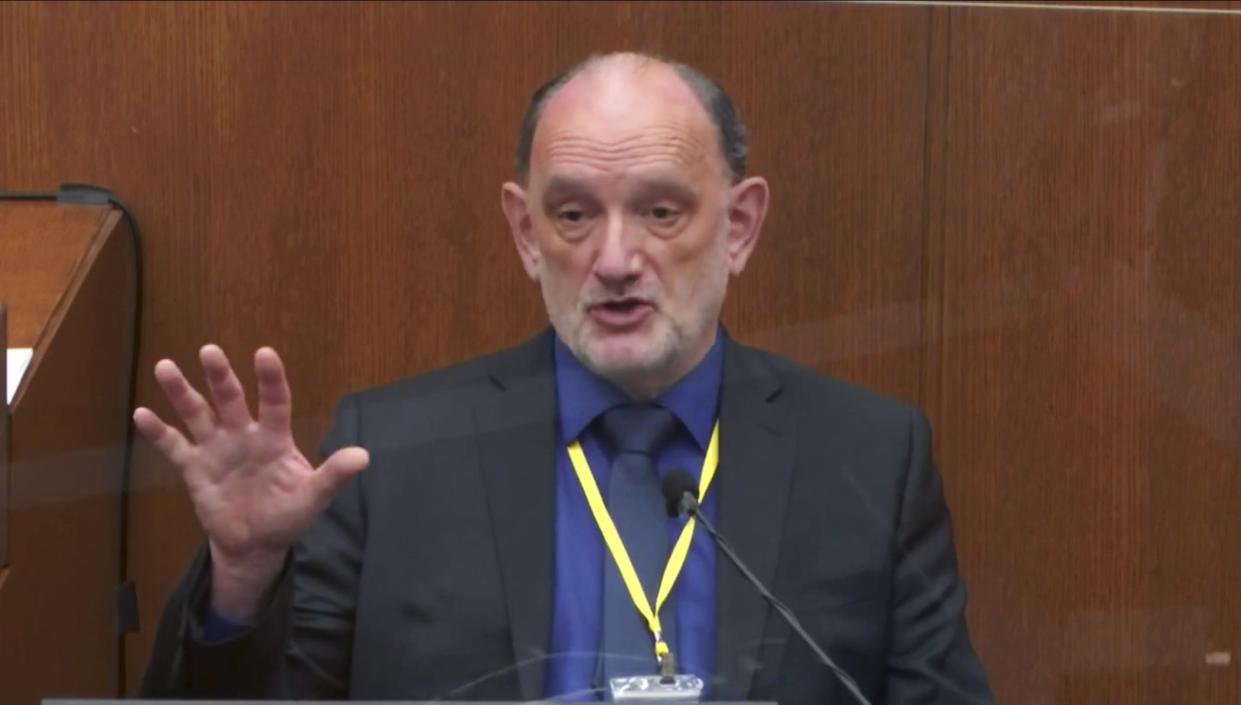
A conviction would be a historic turning point in America, Schultz said, warning that despite the horrifying video and strong case presented by prosecutors, public opinion doesn’t always translate into convictions.
“I wonder if the death of George Floyd and this trial is one of those turning points,” he said. “If we don’t handle this right, have we basically said yet again that we’re not going to address the underlying problems of race in and police use of force in America?”
